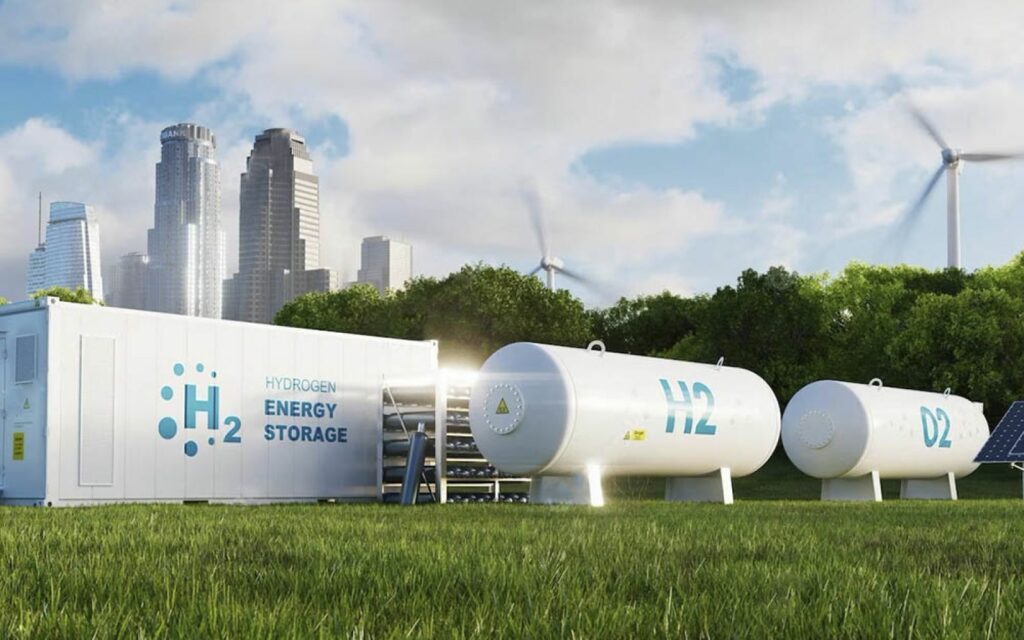Environmental sustainability is on the agenda of all world authorities, and climate change is a palpable reality. The battle against combustion vehicles is underway, so electric vehicles have become an increasingly popular alternative to traditional gasoline or diesel-powered vehicles. This is because they are more efficient in terms of energy consumption and emit fewer greenhouse gases. The electric truck is no exception to this trend and is becoming an increasingly viable transportation option for many companies seeking to reduce their carbon footprint, although this alternative is still in its very early stages, much in line with other vehicles. It is therefore necessary to examine the characteristics, advantages, and problems of the electric truck, as well as some alternatives such as hydrogen trucks, ammonia trucks, and trains.
The electric truck is a vehicle that runs on electricity instead of gasoline or diesel. The energy is stored in rechargeable batteries that power an electric motor that drives the vehicle. Unlike traditional vehicles, electric trucks do not emit exhaust gases, making them more environmentally friendly and less expensive in terms of maintenance.
On the contrary, it should be noted that the batteries have a considerable weight, so the tare weight of the truck is compromised, having a lower load capacity than the traditional truck. And we must not forget that the service life of rechargeable batteries is still an important issue to be defined.
Characteristics of the Electric Truck
The electric truck has several characteristics that make it attractive to companies seeking to reduce their carbon footprint. First, as we have already mentioned, it does not emit exhaust gases, which means it does not produce air pollution. In addition, electric trucks are more efficient in terms of energy consumption than traditional vehicles, which means they can travel more kilometers with less energy. This is partly due to the efficiency of the electric motor, which converts more than 90% of the energy stored in the battery into vehicle movement. Electric trucks are also quieter than traditional vehicles, making them ideal for use in urban areas, one of the functionalities that are already a reality in cities, where we can see units of electric trucks in urban goods distribution tasks (DUM), as well as in maintenance tasks (waste collection, etc.).
Advantages of the Electric Truck
There are several advantages to using the electric truck for transportation. First, as we have already mentioned, electric trucks do not emit exhaust gases, making them more environmentally friendly than traditional vehicles. This is especially important in urban areas, where air quality can be a problem for much of the year, mainly due to the lack of rain, which acts as a cleaning effect. Second, electric trucks are more efficient in terms of energy consumption, which means a reduction in operating costs.
Problems of the Electric Truck
Despite the advantages, there are also some problems associated with the use of the electric truck. First, the battery life is limited, which means that electric trucks have limited range compared to traditional vehicles. While this may be acceptable for local deliveries or short routes, electric trucks may not be suitable for long-distance deliveries, at least at present. In addition, charging the battery takes longer than filling a gas tank, which can affect transport efficiency.
Furthermore, the battery charging infrastructure is not as developed as gasoline or diesel infrastructure, which may limit companies´ ability to implement electric trucks in their fleet. And we have not talked about the acquisition cost of the electric truck, which is currently higher than that of the traditional truck.
Hydrogen Trucks
An alternative to electric trucks are hydrogen trucks. Instead of using batteries, hydrogen trucks use fuel cells that convert hydrogen into electricity, which then powers an electric motor. Hydrogen trucks only emit water vapor, making them even more eco-friendly than electric trucks.
However, hydrogen trucks have their own problems. Firstly, hydrogen is difficult to store and transport, making hydrogen infrastructure costly and difficult to implement. Additionally, hydrogen production still heavily depends on fossil fuels, limiting its usefulness as a truly sustainable alternative.
Ammonia Trucks
Another alternative to electric trucks are ammonia trucks. These vehicles use ammonia as fuel, which is easier to store and transport than hydrogen. Furthermore, ammonia production can be renewable, making it a more sustainable long-term option. However, ammonia trucks are still in an early stage of development and are not yet commercially available.
Trains as an Alternative to Trucks
In addition to electric trucks, hydrogen trucks, and ammonia trucks, trains are also a viable alternative for long-distance cargo transport. Trains are highly efficient in terms of energy consumption and emissions, and can transport large amounts of cargo at once. Moreover, rail transport can be faster and more cost-effective than road transport.
European authorities strongly advocate for the use of trains as a central element of transport, but their use and infrastructure at a European level is highly uneven, which means that their use, both as an exclusive mode of transport and in combination with trucks, is below desired levels.
Conclusion
It is widely known and accepted that electric trucks are a viable and eco-friendly alternative to traditional vehicles for cargo transport. However, their development in sectors such as transport is still limited due to issues such as limited battery life and charging infrastructure.
We also have other alternatives such as hydrogen trucks and ammonia trucks, promising alternatives to traditional vehicles, although they are still in an early stage of development.
Lastly, trains are a highly efficient alternative for long-distance cargo transport, but they remain an elusive goal, that transport mode that everyone agrees is the most balanced in terms of performance and sustainability, but when it comes down to it, receives less support.
Overall, transport is constantly evolving and improving, and companies have many options to choose from to reduce their carbon footprint, although almost all of them are still in their early stages, and they must also work on an important aspect such as the economic balance of this transition.



